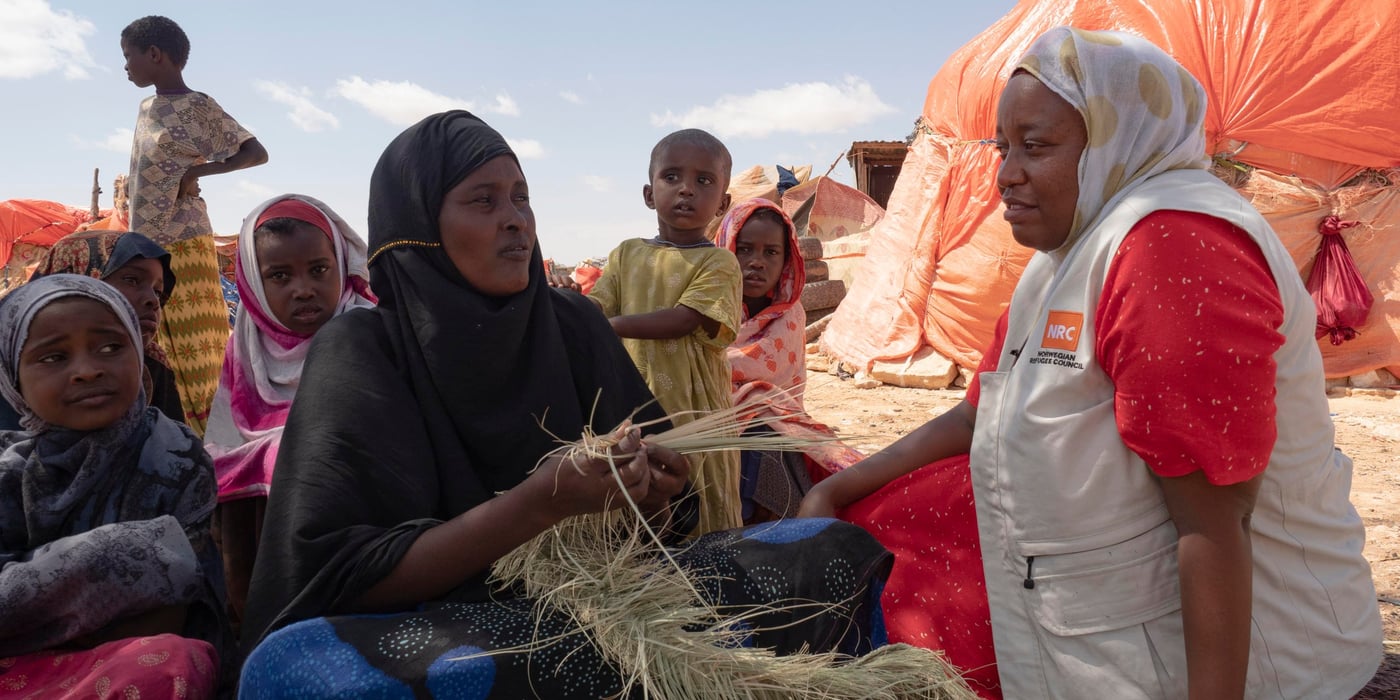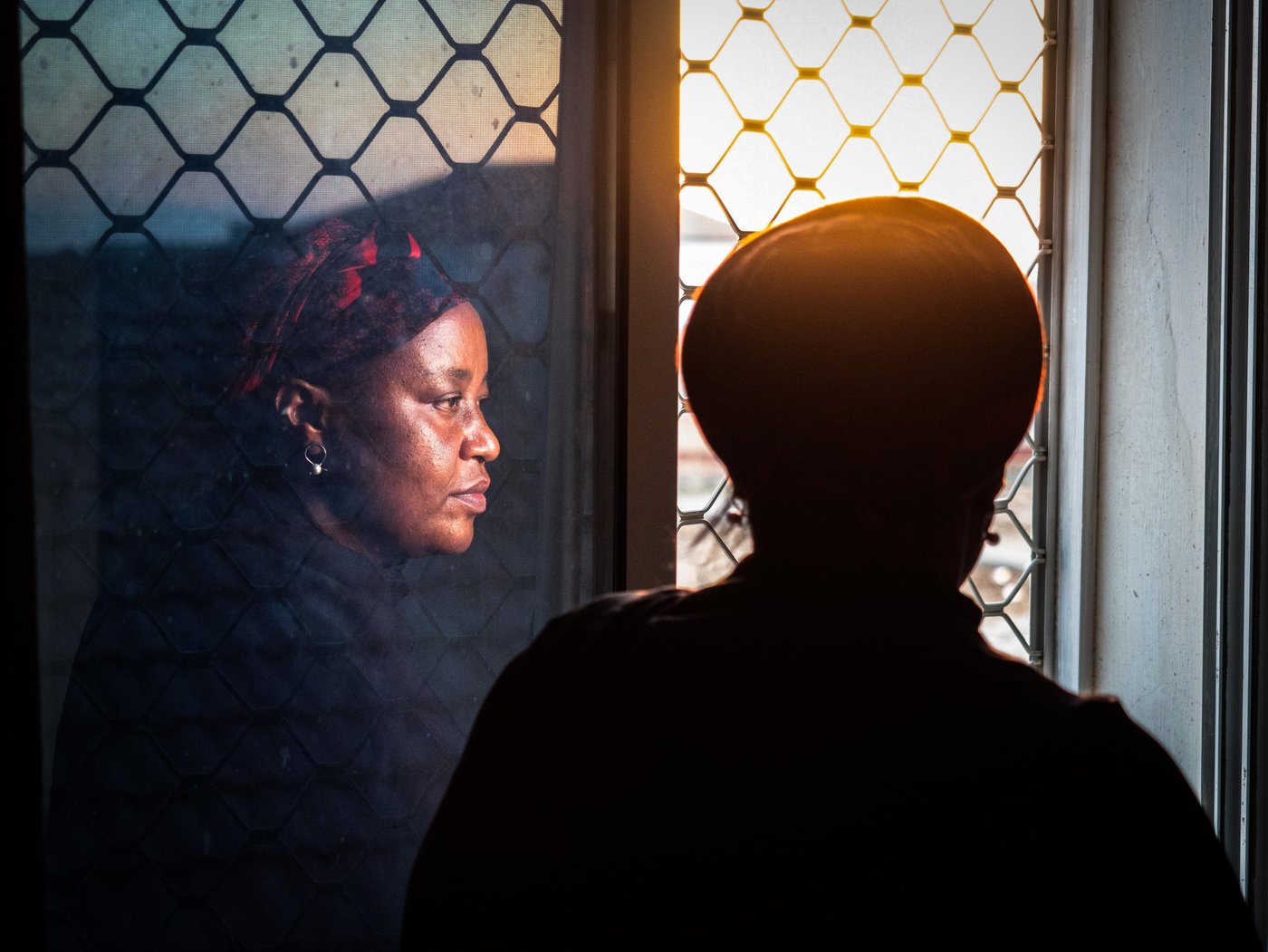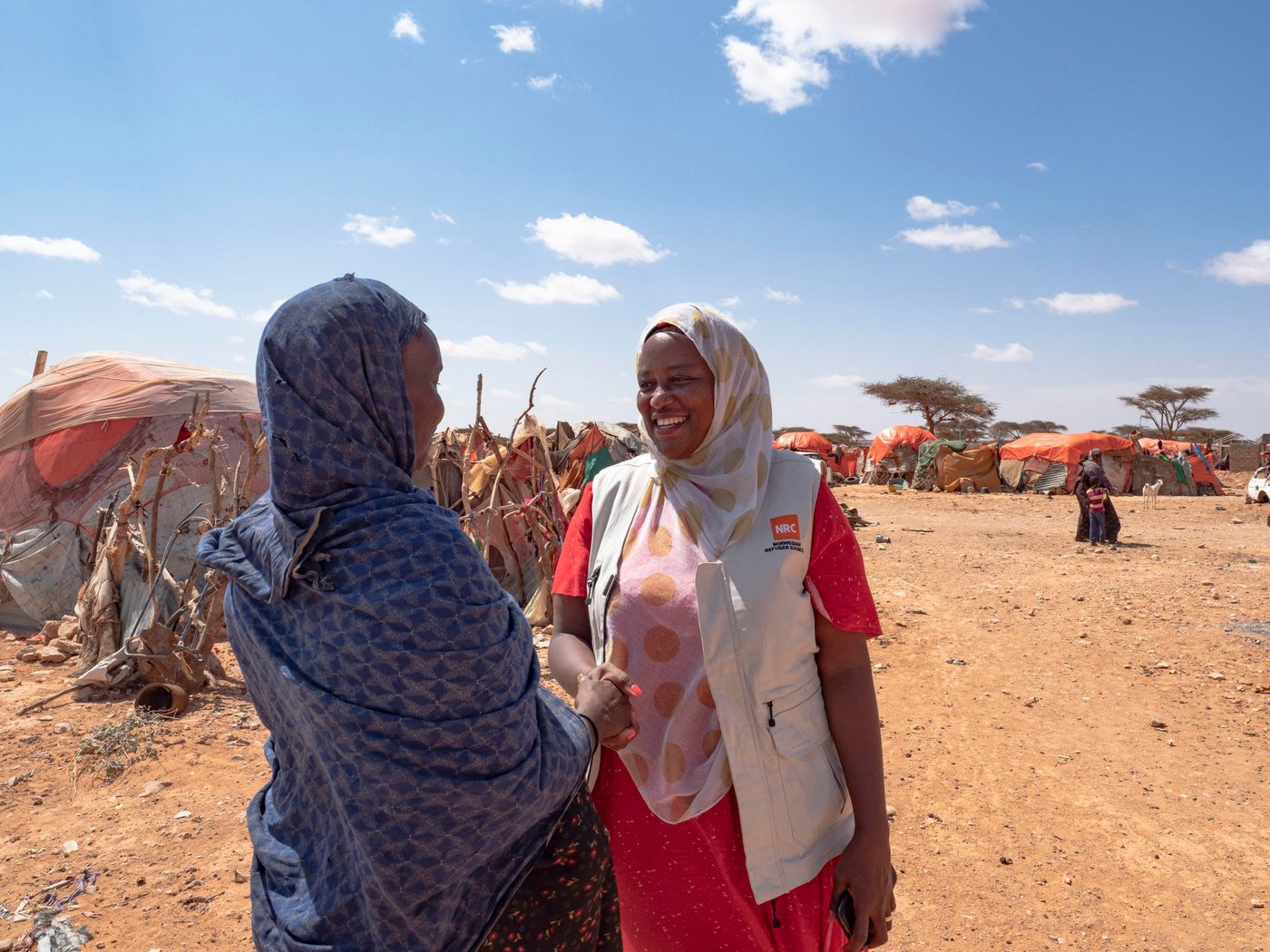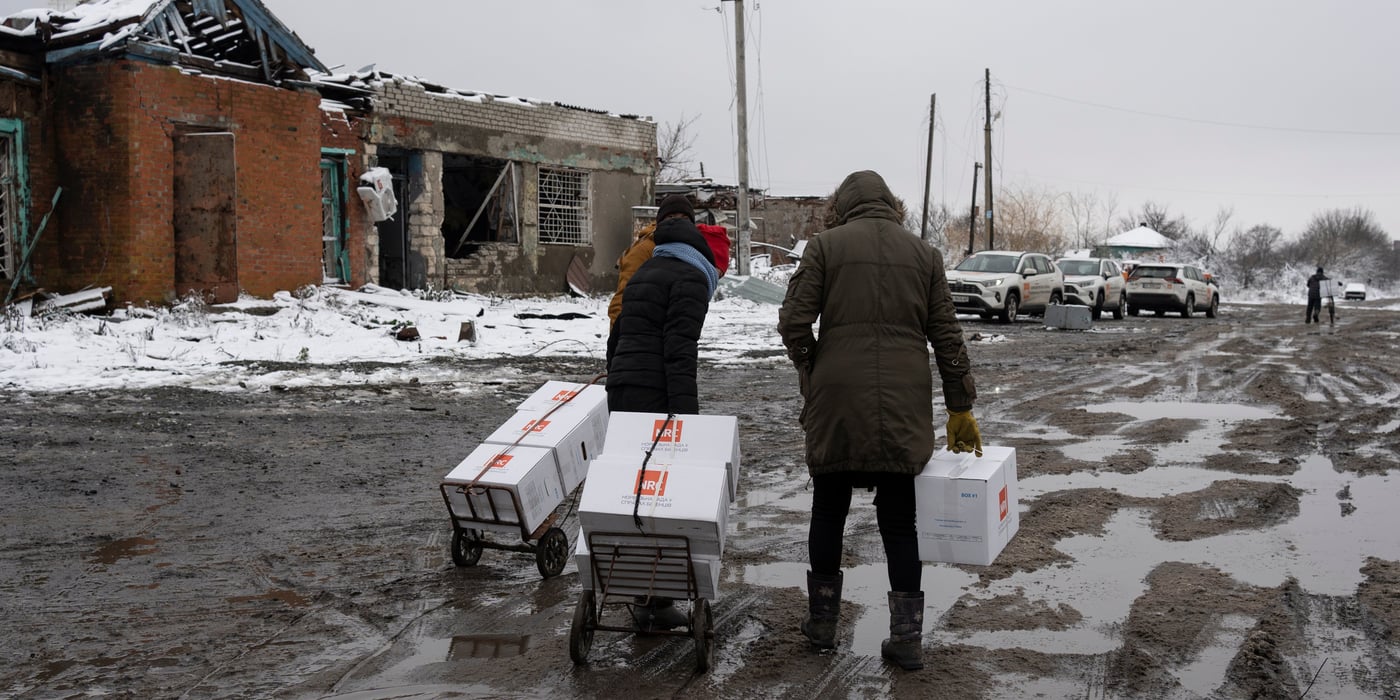
Mercy Gitau is a trained hydrogeologist, responsible for the Norwegian Refugee Council’s (NRC) water, sanitation and hygiene (WASH) projects in Somalia. She is stationed in Garowe, where she works in the NRC office and stays in basic accommodation provided by the organisation. She regularly visits other field offices around the country to follow up WASH projects in different locations.
Mercy is from Nairobi, in neighbouring Kenya, where her family lives but has worked in Somalia for various organisations since 2005. She has worked for NRC for the last year.
Daily attacks
As an aid worker in Somalia, you must always take security precautions and be aware that plans can change at any time. We learned that first-hand when we chose to cancel our visit to Somalia in July, the day before we were supposed to leave. An attack had taken place on a hotel in one of the cities we were hoping to visit, killing 26 people, including a politician and a well-respected journalist.
When we eventually arrived in Mogadishu, the capital of Somalia, two months later, an attack was carried out on the President's office on the same day. A few days after that ten people were killed by a car bomb outside another town. We quickly learned that this is a part of everyday life in Somalia. We ask Mercy – is she afraid for her own safety?
“I get frequent security updates from our Security Adviser, including alerts about attacks and explosions and know that there is always a risk that I may be in the wrong place at the wrong time. But I do everything I can by following the safety rules. After attending the NRC’s security course, I have also become much more aware of how to deal with a dangerous situation should it arise,” she says.

Her friend was kidnapped
One experience made a particularly strong impression on Mercy.
“A friend and colleague of mine was kidnapped here in Somalia a few years ago. She was held captive for two years before being released. Something like that really affects you.”
The security situation puts many restrictions on freedom of movement, both during and outside working hours. Mercy lives in a small flat above the NRC’s office, where she spends almost all of her time when she is not at work.
“It is strange to have to stay indoors most of the day and not be able to go for a walk, visit friends or go out to a restaurant. At the same time, my room is a place where I can relax and feel safe. Here I also have contact with my family at home in Nairobi. I usually call my son on Skype or phone every afternoon when he comes home from school to hear how he's been doing.”
“It is demanding to be a relief worker in Somalia; both me and my family have to give up a lot because of the choice I made. But when I see how much it means to those we help, I have no doubt it's worth it.”




